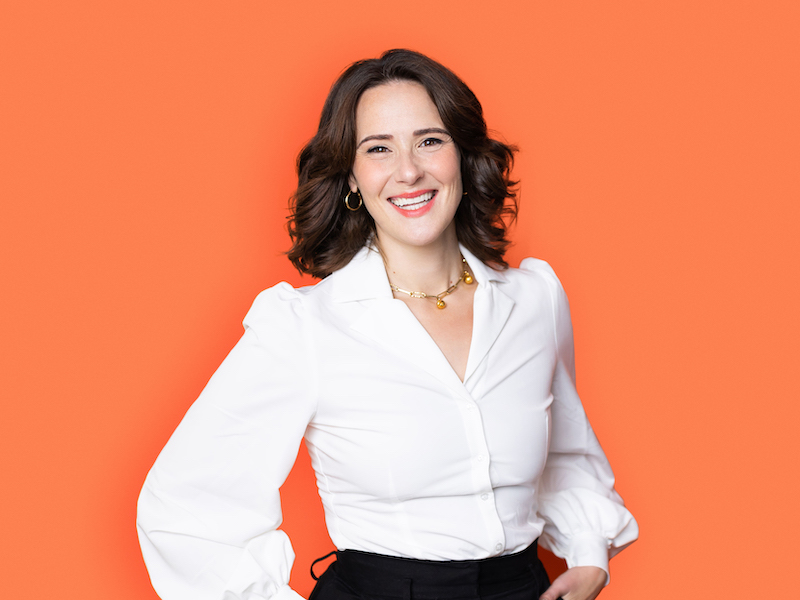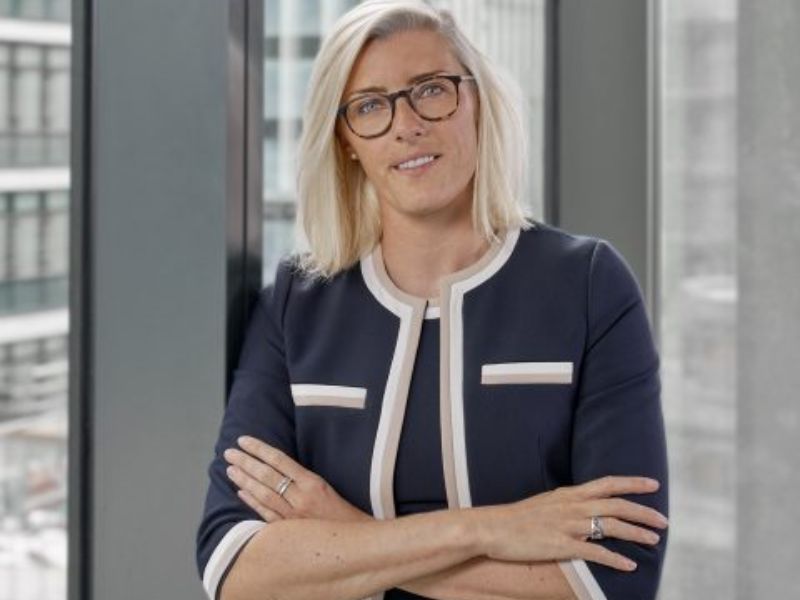Libby Vincent is the founder of Hodology, an executive transition consultancy specialising in extending the tenure of C-level women by assisting them in making a strategic impact in their first 100 days.
After fifteen years working in FTSE 50 Tech and Finance as an expert in organisational change and transition, Libby’s mission is now to transform the way women understand and approach gender politics and corporate dynamics.
Described by her clients as the CEO Special Adviser, Libby has developed an approach to help women on the cusp of a transformational role to reach their highest potential. Libby’s corporate career path includes time in the COO Office at Barclays Corporate, and as Head of Business Analysis for Just Eat Takeaway.
Speaking engagements and media appearances have helped her to establish a reputation as a thought leader in post-covid leadership. Libby is an intersectional feminist and regularly contributes to conversations about equity and diversity.
Tell us a bit about yourself, your background and your current role:
It’s 1999. I am 17 years old and buzzing to start my undergrad at the University of Glasgow. That summer my best friend died in a car accident. I was devastated but determined to make the most of an opportunity she would never have. I moved into my student halls feeling broken and lost. In an attempt to distract myself from my grief, I turned to alcohol. Eventually, I missed so many classes that returning to my studies didn’t seem worthwhile. Instead, I found work in the hospitality industry. Working in bars and clubs no one questions whether you’re hungover or why there’s a whisky on your desk at noon.
Ten years passed and I had worked my way up to General Manager of a live music venue, Glasgow Barfly. One morning, after not enough sleep I arrived to find that someone had smashed every pane of glass in the front doors. As I stared at the damage, I felt nothing. I was completely burned out from poor lifestyle choices and a job that had consumed me. I had all the clichéd bad habits you might expect from a 27-year-old nightclub manager. I was a hungry ghost. My lifestyle had emptied me.
Over the next ten years, I got out of the trade and relocated to London. I ran at my career with the impatience and determination of someone desperate to make up for lost time. I started as an office temp and by changing roles as often as I needed to keep moving forward I added £100k to my salary that decade. By 2019 I was one seat down from the CEO of Just Eat Takeaway – at the time an FTSE 50 organisation employing over 8000 people.
The pandemic helped many of us put so much in perspective and last year, I started my own consultancy. I want to take the fear out of changing roles, especially for women. Initially, my clients were ex-colleagues, but I am now working with women from all over the world. I started by working one on one with clients but I want to help as many women as possible love their new leadership role and am starting to explore how I can do this through courses and content.
Did you ever sit down and plan your career?
LOL. No. Until the last step, every step was a move away from something rather than a step towards a goal. I saw each step as an experiment. I’d give it a go and if it wasn’t for me I would try something else, a little wiser and wealthier than I was.
Have you faced any challenges along the way?
I’ve faced a lot of challenges in my career, but the most common has been difficult people.
“Blockers” are individuals who are deeply embedded in their role. Their influence is often worked through back channels. They have a way of protecting themselves and their relevance by withholding information and opportunities from others. They will often talk about future opportunities for you – a promotion, or an opportunity that they can arrange for you if you’re patient and don’t rock the boat. It’s all part of their game.
These individuals have remained in their positions for so long precisely because they are masters of manipulation. I realised early that it’s unlikely that I’ll be able to change them, or go around them and trying to do so can be a frustrating and ultimately fruitless endeavour.
Thinking of a career ladder can lead you to imagine someone sitting on the rung above preventing you from moving up. I prefer to think of our careers as a mountain with many potential routes to the top and many peaks to aim for.
When I encounter these types of people, I change my path. Although it can be difficult to let go of an opportunity that seems promising, I’ve learned that it’s important to prioritise moving forward. I try to stay focused on my goals and not let others hold me back. Dealing with difficult people can be challenging, but it’s important to remember that we have control over our own direction.
What has been your biggest achievement to date?
Picking myself up off the pavement outside the Barfly and being willing to believe that I could do something else if I chose to.
What one thing do you believe has been a major factor in you achieving success?
My safety net. I know that I have people around me who will always make sure I have somewhere to sleep and a meal. It’s a privilege to have people who love and accept me and have had enough to spare. Although I’ve rarely needed them, just knowing they were there helped me to take risks I might not otherwise have considered.
As I found my feet, I prioritised building my safety net. I have enough put aside to see me through any dry spells and if it comes to it I still remember how to pull a pint. I’ve even been lucky enough to provide a safety net for someone else.
How do you feel about mentoring? Have you mentored anyone or are you someone’s mentee?
I mentor the most amazing woman. She works in ML and is much smarter than me. It is a joy to be able to share with her the perspective of age. So much of what we learn as we travel through our careers is how to navigate the politics of the workplace. Like a soap opera, we start to see the same characters again and again. I can share with her things that she would have figured out herself over time but now perhaps doesn’t have to. When she is a big tech CEO I’ll know that I had some small part in lifting her up.
I don’t offer answers. We discuss what’s on her mind and I share similar situations I’ve seen or been through. Sometimes it’s just about asking the right questions.
If you could change one thing to accelerate the pace of change for Gender Parity, what would it be?
The piece of the pipeline I am focused on is the joins. Too many organisations hire women and then give us little more than a sink-or-swim onboarding. We’re left to figure it out on our own, often in the minority and while dealing with how gender bias shapes how we are perceived and balancing our other commitments.
I’ve heard it described as lots of things – a tightrope, a minefield, a cliff-edge – none of them sound like fun. This is why I suspect many of us fear moving on or moving up because we fear that those first 100 days can be so difficult to get right. Working with clients I have found this to be especially true when returning from a career break or taking a significant step up.
Studies show that women are perceived as being less willing to take a risk by leaving and so employers feel more comfortable offering them less money and fewer opportunities.
Without being willing to move you get stuck behind those blockers or burnout trying to make progress despite them. Sod them! Let them have their tiny empire. There are plenty of employers that are desperate for someone like you to make a difference in their organisation.
If I could change one thing to accelerate the pace of change for Gender Parity, what would it be? More middle-fingers shown to ungrateful employers. With the planning and preparation, starting a new role is both fulfilling and fun.
If you could give one piece of advice to your younger self what would it be?
Accept help. It is not praiseworthy to try and deal with it on your own if by dealing with it you are finding increasingly problematic ways of avoiding it.
What is your next challenge and what are you hoping to achieve in the future?
An online course… no, a book… no, a TEDx talk… My biggest challenge is knowing where to direct all this enthusiasm and ambition. I’m really excited about my potential to make a change in something that really matters to me and I am open to where that takes me.
What advice would you give women considering their career path?
Don’t take directions from people who haven’t been where you want to go. The world of work is changing so quickly that paths available to others even as recently as five years ago are closed forever and new ones open every day. Asking how they became CEO is like asking for their winning lottery numbers. The best way to find out if something is for you is to try it. I’m going to use my mountain metaphor again – change direction as little and as often as you need. Sometimes you’re up for the challenge of a steep climb, sometimes you will take a scenic route. Trailblazers make their own paths.









